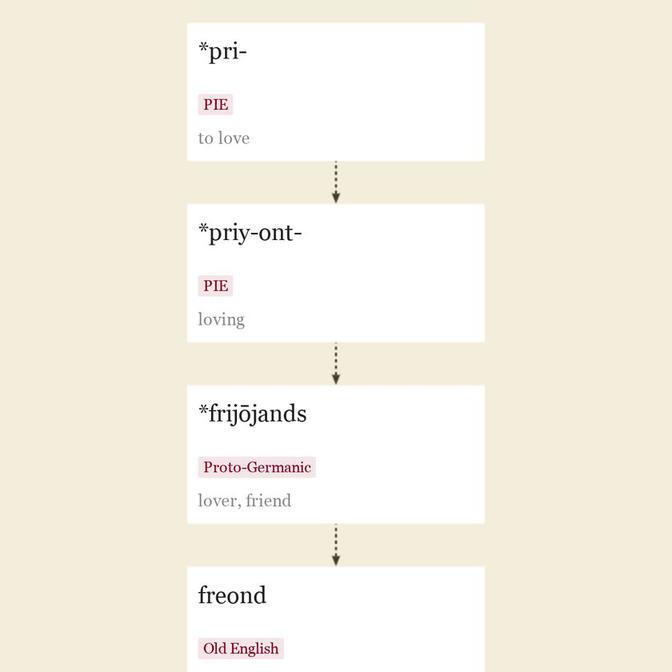| 词源 |
fiend n.Old English feond "enemy, foe, adversary," originally present participle of feogan "to hate," from Proto-Germanic *fijand- "hating, hostile" (source also of Old Frisian fiand "enemy," Old Saxon fiond, Middle Dutch viant, Dutch vijand "enemy," Old Norse fjandi, Old High German fiant, Gothic fijands), from suffixed form of PIE root *pe(i)- "to hurt" (source also of Sanskrit pijati "reviles, scorns;" Avestan paman-, name of a skin disease; Greek pema "disaster, sorrow, misery, woe;" Gothic faian "to blame"). As spelling suggests, the word originally was the opposite of friend (n.). Both are from the active participles of the Germanic verbs for "to love" and "to hate." Boutkan says the "fiend" word was a Germanic analogical formation from the "friend" word. According to Bammesberger ["English Etymology"], "The long vowel in FIEND is regular. In FRIEND the vowel has been shortened; perhaps the shortening is due to compounds like FRIENDSHIP, in which the consonant group (-nds-) regularly caused shortening of the preceeding long vowel." Fiend at first described any hostile enemy (male and female, with abstract noun form feondscipe "fiendship"), but it began to be used in late Old English for "the Devil, Satan" (literally "adversary") as the "enemy of mankind," which shifted its sense to "diabolical person" (early 13c.). The old sense of the word devolved to foe, then to the imported word enemy. For spelling with -ie- see field. Meaning "devotee (of whatever is indicated)," as in dope fiend, is from 1865. updated on July 26, 2018 |
